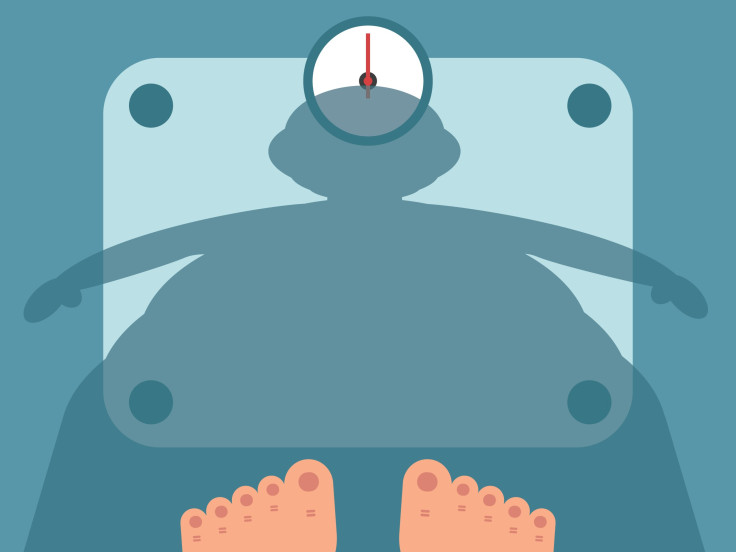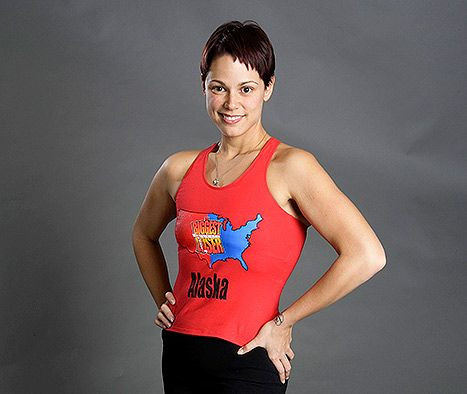'Biggest Loser' Contestant Kai Hibbard Calls Show A 'Fat Shaming Disaster'; Why Some Win With Negative Reinforcement

On the surface, it seems weight loss shows have proven successful, from their high ratings and the contestants they produce. Successful, that is, until a contestant puts the integrity of the show into question. Nearly 10 years after 31-year-old Kai Hibbard competed on The Biggest Loser to lose weight, she says the show was unhealthy. Now, she feels obligated to reveal why.
“My hair was falling out. My period stopped. I was only sleeping three hours a night,” former contestant from The Biggest Loser Hibbard said in an interview with The New York Post. “One of the other ‘losers’ and I started taking showers together because we couldn’t lift our arms over our heads. We’d duck down so we could shampoo each other.”
Despite Hibbard’s 121-lb. weight loss in her 2006 season of one of NBC’s most watched shows, she reveals her regret and disdain for being part of the show. Hibbard’s rants are riddled with claims that the television show’s weight loss tactics were too extreme, emotionally abusive, and physically dangerous for the obese contestants. This isn’t the first time the show has been criticized. An NBC spokesperson swiftly responded to Hibbard’s public allegations.
"Contestants on The Biggest Loser are closely monitored and medically supervised,” Jill Carmen of NBC said in a written statement. “The consistent health transformations of over 200 contestants through nine seasons of the program speak for themselves."
Hibbard, who started the show at 265 lbs., insists there was nothing healthy about program she was put through. She made it to the final four, and was encouraged to “tough it out” despite the physical pain she was experiencing. She wound up losing 118 lbs in just 12 weeks, and in 2010 she said health became such an obsession in her life to the point it was a “life-threatening” eating disorder.
“The whole f--king show is a fat-shaming disaster that I’m embarrassed to have participated in,” Hibbard said. “You’re brainwashed to believe that you’re super-lucky to be there. I was thinking, ‘Dear God, don’t let anybody down. You will appear ungrateful if you don’t lose more weight before the season finale.’”

What Works Better For Weight Loss: Positive or Negative Reinforcement?
Hibbard’s claims continued and went as far as saying the trainers enjoyed seeing contestants collapse mentally and physically. The trainers, she said, sent text messages telling contestants that they’re going to die before their children grow up. “They’d get a sick pleasure out of it,” she said. “They’d say, ‘It’s because you’re fat. Look at all the fat you have on you.’ And that was our fault, so this was our punishment.”
But was it true? Hibbard’s 5-foot-six-inch frame was not meant to carry the 265 lbs. she entered the show with, which categorized her as clinically obese. She blames the eating disorder she battled with after the show, as her trainers’ fault. However, Hibbard had an eating disorder at the time she entered the show known as “binge eating disorder” according to the National eating Disorders Association. After she left the show she simply traded it in for a new one, so instead of compulsively eating large amounts of food, she became a compulsive exerciser highly focused on healthy eating instead. By blaming the show, Hibbard no longer has to hold herself accountable for her unhealthy relationship with diet and exercise, which started long before she began the show.
Because she was obese that put her at an increased risk for heart disease, stroke, type 2 diabetes, liver and gallbladder disease, high cholesterol and blood pressure, and certain types of cancer along with 78.6 million other adults in America, according to the Centers for Disease Control and Prevention. People die from obesity-related diseases every day, and because of that some people need extreme measures to drag them out of the death traps they’ve created in their body.
Emotional eating is often tied to bullying and depression, which is why the cycle must stop and lifestyle changes must replace the negativity. But is it possible negative reinforcement and coaching approaches work for some people, while fails others?
"That period in my life where I was the overweight kid, the bullied kid, I wouldn't trade it, because it's made me who I am today,” The Biggest Loser trainer Jillian Michaels admitted to one of her group workout classes in 2013. “It's given me my drive, it's given me my empathy, it's given me my passion for what I do. If I was this perfect kid, I wonder if I would ever know what it feels like to be bullied or cast out or alone, and it's the way that I relate to people. So for that I look at it with gratitude."
Some people actually flourish in a negative conditioning environment, Michaels being one of them. Behavior studies have supported the theory that a combination of positive and negative reinforcement is the key to reaching the largest weight loss group. Positive reinforcement does succeed in strengthening a behavior with an award such as praise, according to Simply Psychology, but it can also fail certain types of personalities.
Those who flourish from an authorities’ approval will likely try to achieve goals, such as losing a certain amount of pounds, in order to receive their positive reinforcement. Because Hibbard landed in fourth place, she was unable to continue earning praise and concluded her experience on the show with a negative message: she failed.
Negative reinforcement is the removal of an unpleasant situation. A contestant may work harder if it makes their coach stop telling them they’ll die from the unhealthy weight gain they’ve accumulated over the years. The show brings a combination of both negative and positive into contestants to push them to their physical limits, which is the place goals are set, reached for, and often achieved. The success of those goals depends heavily on what kind of stimulus environment motivates an individual enough to live a healthy life.



























